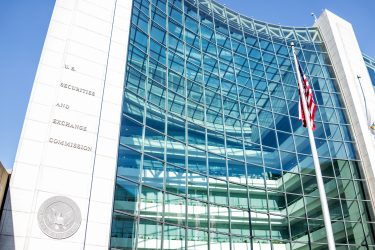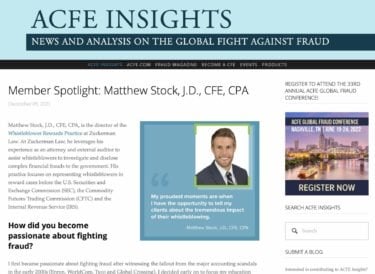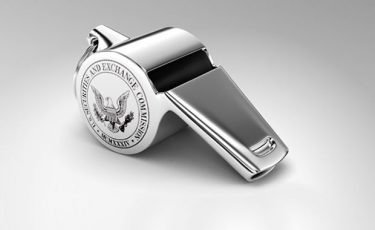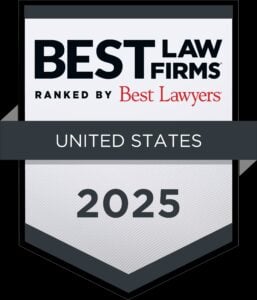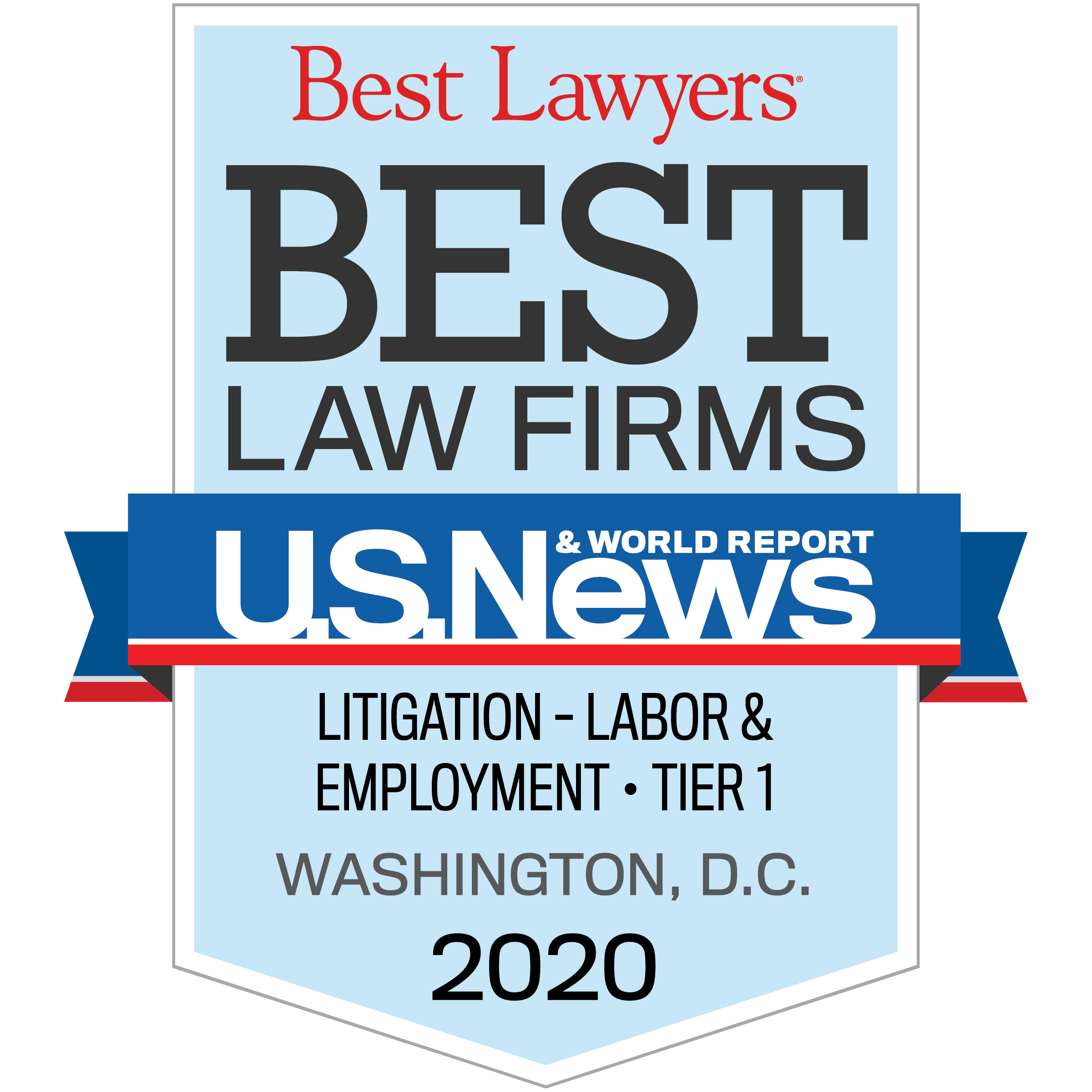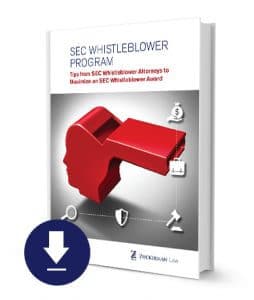
Lawyers Representing SEC Whistleblowers
Under the SEC Whistleblower Program, whistleblowers may receive a reward if they provide the SEC with original information about violations of securities laws, including engaging in brokerage activity and charging fees without registering as a broker-dealer. A whistleblower may receive an award of between 10% and 30% of the total monetary sanctions collected if their information leads the SEC to a successful enforcement action with monetary sanctions in excess of $1 million. If represented by counsel, a whistleblower may submit a tip anonymously to the SEC.
Since 2012, the SEC has paid $1.3 billion in awards to whistleblowers. The largest SEC whistleblower awards to date are $114 million and $50 million. See our article: How to Report Unregistered Convertible Debt Lenders or Penny Stock Dealers and Earn an SEC Whistleblower Award.
Our firm has secured multi-million dollar SEC whistleblower awards for our clients.
If you have information that may qualify for an SEC whistleblower award, contact the Director of our SEC whistleblower practice at [email protected] or call our leading SEC whistleblower lawyers at (202) 930-5901 or (202) 262-8959. All inquiries are confidential. In conjunction with our courageous clients, we have helped the SEC halt multi-million dollar investment schemes, expose violations at large publicly traded companies and return funds to defrauded investors.
Recently the Association of Certified Fraud Examiners published a profile of SEC whistleblower lawyer Matt Stock’s success working with whistleblowers to fight fraud:
Contact us today to find out the strategies that we have successfully employed to secure SEC whistleblower awards for our whistleblower clients.
When Must a Broker Register?
Under Section 15 of the Securities Exchange Act of 1934, most “brokers” and “dealers” must register with the SEC. A “broker” is defined broadly as “any person (individual or entity) engaged in the business of effecting transactions in securities for the account of others.” A “dealer” is defined as “any person engaged in the business of buying and selling securities for his own account, through a broker or otherwise.”
On the SEC’s Broker-Dealer page, it notes that “[s]ometimes you can easily tell if someone is a broker or dealer. For example, a person who executes transactions for others on a securities exchange clearly is a broker. And a firm that advertises publicly it makes a market in securities is obviously a dealer. Other situations can be less clear.”
If an individual or entity is a broker or dealer, it must be properly registered before it provides brokerage services and receives compensation in return.
SEC Enforcement Actions
SEC Enforcement Action Against Private Equity Fund
On June 1, 2016, the SEC announced that a private equity fund advisory firm, Blackstreet Capital Management, and its owner have agreed to pay more than $3.1 million to settle charges that they engaged in brokerage activity and charged fees without registering as a broker-dealer. According to the SEC’s order, Blackstreet fully disclosed to its funds and investors that it would provide brokerage services in exchange for a fee, yet the firm failed to comply with the registration requirements to operate as a broker-dealer.
In addition, the SEC investigation revealed that the owners engaged in conflicted transactions and inadequately disclosed fees and expenses. Notably, the SEC has recently made violations by investment advisers and companies an enforcement priority.
SEC Enforcement Action Against Offshore Broker-Dealers
On April 18, 2013, the SEC charged Gibraltar Global Securities, Inc. a Bahamas-based broker-dealer, $25 million for unlawfully operating as a broker-dealer in the United States. According to the SEC’s complaint, the Bahamas-based broker-dealer clearly targeted and solicited U.S. customers though its website by:
- Offering “offshore” brokerage services with commissions comparable to those on the “mainland.”
- Stating that “[u]sing a Gibraltar offshore brokerage account will enable you to trade on most stock exchanges in the world at a cost equivalent to that incurred using mainland brokers, without paying taxes on the profits.”
- Promising prospective customers an “extra layer of confidentiality” to protect assets from “government seizures or frivolous divorce settlements.”
- Showing price-volume graphs solely for U.S. markets.
- Only charging fees in U.S. dollars – with no provision for currency exchange.
Using these marketing tactics, the Bahamas-based broker-dealer was able to sell approximately $100 million of low-priced microcap securities on behalf of U.S. customers, charging them commissions of between 2-3%.
SEC Fines Florida-based Mining Corp. $8.5 Million
In August 2017, the SEC charged Florida-based Hidalgo Mining Corp. $8.5 million after the company and two of its executive mislead investors in a Mexican silver mine. According to the SEC’s complaint, the company raised $10.35 million from approximately 85 investors by misleading investors about the investment and violating federal securities laws, which included:
- Failing to register with the SEC in order to lawfully sell the securities;
- Making personal written guarantees to some investors that the company’s executives would “assume full responsibility” for repaying investors if the company defaulted (which they could not);
- Failing to disclose this guarantee to the other investors; and
- Failing to disclose to investors that 10% of their investments would be used to pay commissions directly to the executives and the sales team to push their securities offering.
In 2014, the Hidalgo Mining Corp. defaulted and the company executives could not repay the investors. The company allegedly defaulted due to lack of capital and low silver prices. This scheme appears to be prevalent in Florida. In December 2014, the SEC brought a similar enforcement action against a Florida-based gold mining investment company, Aurum Mining LLC. According to the SEC’s complaint, the company and its executives raised approximately $4 million from investors in Florida by making false statements about the investment. The executives then used the funds to purchase personal luxury items, including upscale apartments in Lima and other living and travel expenses.
SEC Whistleblower Reward Program
Under the SEC Whistleblower Program, whistleblowers may be eligible for monetary awards when they voluntarily provide the SEC with original information about violations of federal securities laws that leads the SEC to bring a successful enforcement action resulting in monetary sanctions exceeding $1 million. Click below to hear SEC whistleblower lawyer Matthew Stock’s tips for SEC whistleblowers:
Qualifying for an SEC Whistleblower Award
Whistleblower Protections for SEC Whistleblowers
The SEC Whistleblower Program also protects the confidentiality of whistleblowers and does not disclose information that might directly or indirectly reveal a whistleblower’s identity. Furthermore, the Dodd-Frank Act protects whistleblowers from retaliation by their employers for reporting violations of securities laws.
For more information about protections and remedies for corporate whistleblowers, download our free guide Sarbanes-Oxley Whistleblower Protection: Robust Protection for Corporate Whistleblowers.
SEC Whistleblower Attorneys
For more information about whistleblower rewards and bounties, contact the SEC whistleblower lawyers at Zuckerman Law at 202-262-8959.
U.S. News and Best Lawyers® have named Zuckerman Law a Tier 1 firm in Litigation – Labor and Employment in the Washington DC metropolitan area in the 2018 edition “Best Law Firms.” Washingtonian magazine named two of our attorneys top whistleblower lawyers.
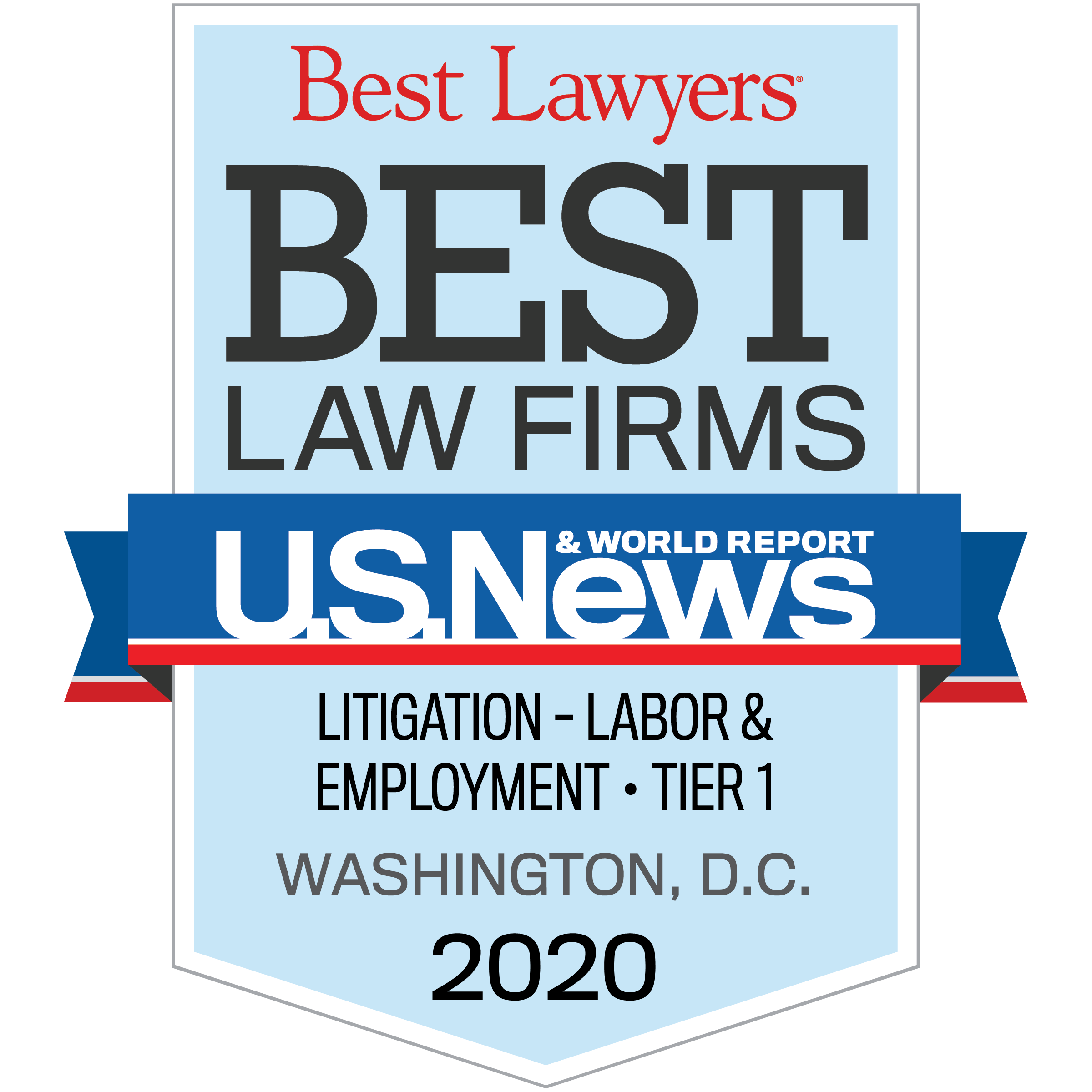
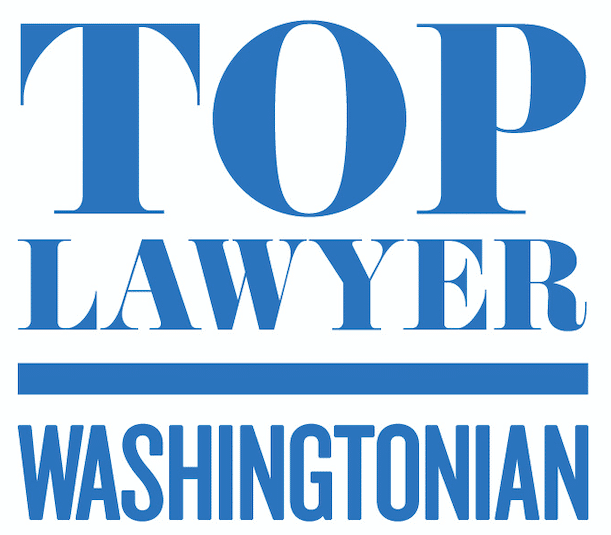
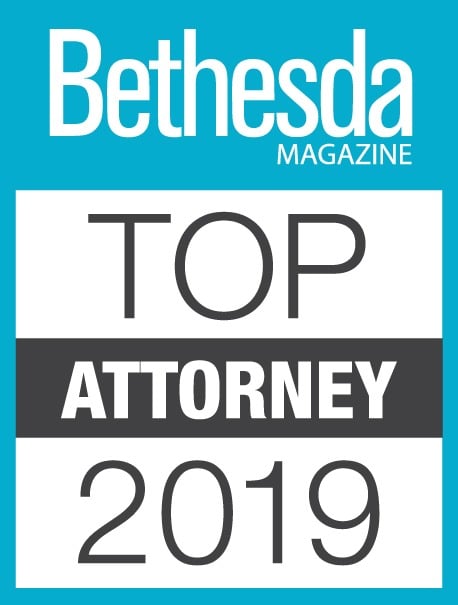
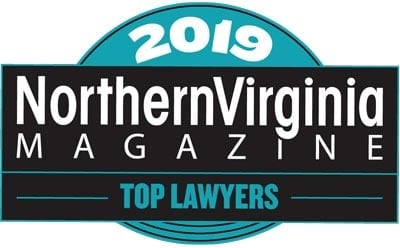
Tips to Successfully Navigate the Process to Obtain an SEC Whistleblower Award
whistleblower_lawyers_012017_infographic
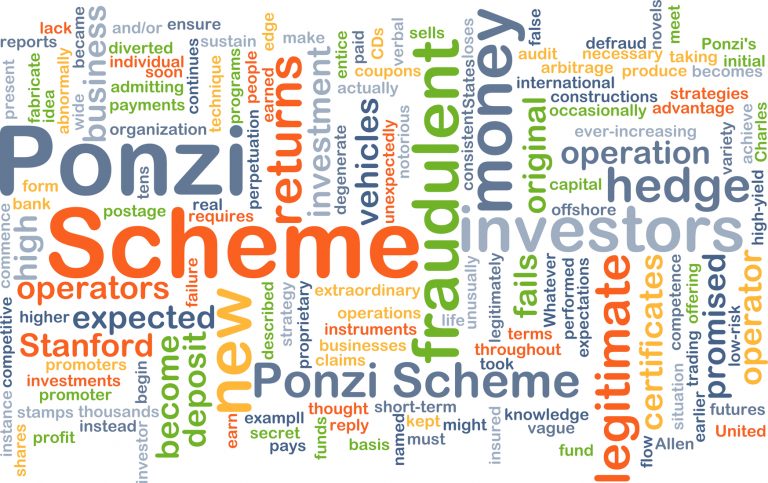
Fraudulent Securities Offerings and Ponzi Scheme Whistleblower Lawyers
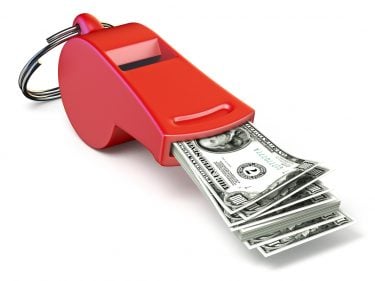
Since 2012, the SEC has awarded nearly $1.3 billion to whistleblowers under the program. The largest SEC whistleblower awards to date are $114 million and $50 million. Our attorneys have substantial experience helping the SEC to halt more than $1 billion in ponzi schemes and fraudulent securities offerings.
If you have information that may qualify for an SEC whistleblower award, contact the Director of our SEC whistleblower practice at [email protected] or call our leading SEC whistleblower lawyers at (202) 930-5901 or (202) 262-8959.






All inquiries are confidential.
Recently the Association of Certified Fraud Examiners published a profile of SEC whistleblower lawyer Matt Stock’s success working with whistleblowers to fight fraud:
Read our tips for SEC whistleblowers and Forbes column about the success of the SEC whistleblower program.
According to a speech by former SEC Enforcement Director Andrew Ceresney, fraudulent securities offerings and Ponzi schemes are the types of securities fraud cases where whistleblowers’ assistance is especially valued. The Director noted that whistleblowers have helped the SEC identify false and misleading statements in offering memoranda and marketing materials, which enables the agency to act quickly and prevent investment frauds from luring more investors. The SEC has issued an investor alert about these fraudulent securities schemes.
Fraudulent Investment Offerings

SEC Enforcement Actions Against False or Misleading Investment Offerings
- On October 13, 2015, UBS agreed to pay $19.5 million to settle charges that it misled U.S. investors about its structured-notes trading strategy. According to the SEC’s press release, UBS falsely stated that the investment relied on a “transparent” and “systematic” currency-trading system that used “market prices” to calculate the financial instruments underlying the index. In reality, UBS failed to disclose hedging trades that reduced the index price by about 5%. As a result of the reduced index price, investors lost roughly $5.5 million.
- On March 9, 2016, the SEC charged California’s largest agricultural water district with misleading investors about its financial condition as it issued a $77 million bond offering. The water district represented to investors that it met or exceeded a 1.25 debt service coverage ratio, which it was required to maintain pursuant to a previous bond offering. In order to meet this ratio, the water district used misleading accounting to record additional revenue by reclassifying funds from reserve accounts. The general manager of the water district jokingly referred to these transactions as “a little Enron accounting.” The actual coverage ratio was only .11, instead of the 1.25 reported to investors.
- On August 15, 2018, the SEC filed an emergency action against Equitybuild, Inc. and Equitybuild Finance, LLC, charging them with operating a $135 million offering fraud involving real estate. According to the SEC’s complaint, the defendants raised these funds by falsely promising safe investments fully secured by income-producing real estate. Thereafter, the defendants took 15-30% of investors’ funds as undisclosed fees, hiding the fees by reporting inflated acquisition costs, and contrary to defendants’ representations, the real estate did not earn enough to pay the double-digit returns promised to investors. As a result, the defendants could only pay earlier investors by raising funds from unwitting new investors in a Ponzi-like fashion.
For more information about offering fraud, see the SEC’s Investor Alert: 10 Red Flags That an Unregistered Offering May Be a Scam.
Ponzi and Pyramid Schemes
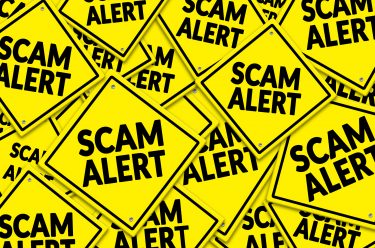
According to the SEC, in the classic Pyramid scheme, “participants attempt to make money solely by recruiting new participants into the program. The hallmark of these schemes is the promise of sky-high returns in a short period of time for doing nothing other than handing over your money and getting others to do the same.”
How to Spot a Ponzi Scheme
The SEC compiled a list of red flags that are common to most Ponzi schemes, which include:
- high investment returns with little or no risk;
- overly consistent returns;
- unregistered investments;
- unlicensed sellers;
- secretive and/or complex strategies;
- issues with paperwork; and
- difficulty receiving payments.
How to Spot a Pyramid Scheme
For more information about pyramid schemes, see the SEC’s Investor Alert: Beware of Pyramid Schemes Posing as Multi-Level Marketing Programs.
SEC Enforcement Actions Against Ponzi and Pyramid Schemes
- On March 10, 2016, the SEC charged an investment group and three top executives with hiding the rapidly deteriorating financial condition of the enterprise while raising more than $350 million from investors. In the scheme, the executives defrauded more than 1,500 investors into believing that they were investing in healthcare, education, and transportation when their money was really being used to keep the firm from going bankrupt. The operation showed some of the typical warning signs of a Ponzi scheme, such as promising high rates of return that ranged from 8.5% to 10%. In late 2015, the scheme unraveled after the firm could no longer meet scheduled redemptions.
- On March 24, 2016, the SEC charged a real estate company with engaging in a $2.7 million Ponzi scheme that targeted elderly investors. Like many Ponzi schemes, the company “guaranteed income” to investors. This income was purportedly derived from the profits of a Pennsylvania real estate venture that bought, redeveloped, and sold properties. In reality, the company did not operate a real estate venture, and it used the investments for personal expenses, such as purchasing tickets for sporting events, paying college tuition, and maintaining personal credit cards.
- On May 1, 2018, the SEC announced fraud charges against Arthur Adams and his company, Madison Timber Properties, for running an $85 million Ponzi scheme. According to the SEC’s complaint, Adams lied to investors by telling them their money would be used by his company to secure and harvest timber, and promised annual returns of 12-15%. Instead of using the investors’ money for timber, Adams used it to pay for his own personal expenses, to develop an unrelated real estate project, and to pay back early investors with later investors’ funds.
- On June 19, 2018, the SEC obtained an asset freeze for a $102 million Ponzi scheme. According to the complaint, the defendants raised money from more than 600 investors across the United States. Then, instead of investing the funds as advertised, the fraudsters spent at least $20 million to enrich themselves, paid $38.5 million in Ponzi-like payments, and transferred much of the remainder in transactions that appear unrelated to their purported business.
- On September 19, 2018, the SEC obtained an asset freeze for a $345 million Ponzi scheme. According to the SEC’s complaint, three defendants raised the $345 million from 230 investors across the United States by promising significant profits from the purchase and resale of consumer debt portfolios. Instead of using investors’ money as promised, the defendants allegedly used the funds to make Ponzi-like payments to earlier investors and fund their extravagant lifestyles, including the purchase of luxury homes for millions and 25 high-ends cars for approximately $10.2 million, among other things.
For more information about Ponzi schemes, see the SEC’s General Resources on Ponzi schemes here.
Dodd-Frank Whistleblower Program
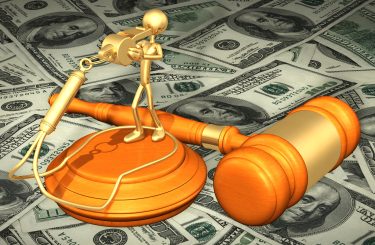
Since 2012, the SEC Whistleblower Office has awarded nearly $1.3 billion in awards to whistleblowers.
For more information about the SEC Whistleblower Program, see our eBook Tips from SEC Whistleblower Attorneys to Maximize an SEC Whistleblower Award. Click below to hear SEC whistleblower lawyer Matt Stock’s tips for SEC whistleblowers:
SEC Whistleblower Bounties
Whistleblowers are eligible to receive between 10% and 30% of the monetary sanctions collected.
Corporate Whistleblower Protection
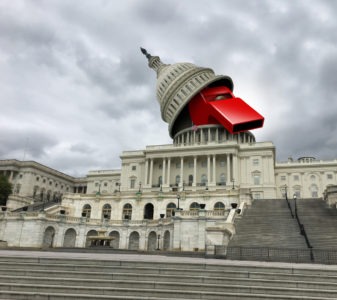
SEC Whistleblower Attorneys
For more information about whistleblower rewards and bounties, contact the SEC whistleblower lawyers at Zuckerman Law at 202-262-8959.
U.S. News and Best Lawyers® have named Zuckerman Law a Tier 1 firm in Litigation – Labor and Employment in the Washington DC metropolitan area in the 2020 edition “Best Law Firms.” In 2017, Washingtonian magazine named two of our attorneys top whistleblower lawyers.
SEC Whistleblower Process
Additional Resources
For more information about the SEC Whistleblower Program, see the following SEC posts:
- SEC v. Merrill et al., case number 1:18-cv-02844,
- SEC Litigation Release: SEC v. Tropikgadget FZE,
- SEC Press Release: SEC v CKB168,
- SEC Press Release: SEC v Rex Venture Group,
- FTC Blog: Pyramids of Fortune?
- FTC Article: Multilevel Marketing
- SEC Investor Alert: Social Media and Investing – Avoiding Fraud,
- SEC Investor Bulletin: Affinity Fraud,
- Investor.gov Article: Avoiding Fraud, and
- SEC Interpretative Release: Multi-level Distributorships & Pyramid Sales Plans.
whistleblower_lawyers_012017_infographic
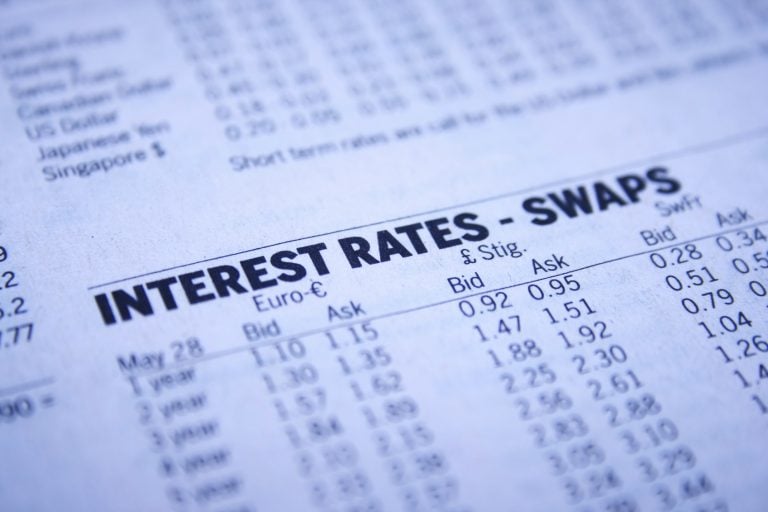
CFTC Whistleblower Reward Lawyers
The CFTC Whistleblower Reward Program provides whistleblowers with a strong monetary incentive, as well as anti-retaliation protections, for reporting wrongdoing to the CFTC. This includes violations or fraud in connection with:
- Commodity futures;
- Commodity options;
- Swap trading markets;
- Derivatives; and
-
Foreign corrupt practices.
On October 21, 2021, the CFTC awarded a whistleblower $200 million for providing information that led the CFTC to evidence of wrongdoing concerning the manipulation of financial benchmarks used by global banks. Approximately 65% of whistleblower cases filed at the CFTC involve charges of commodities fraud, market manipulation schemes, and spoofing. Whistleblower tips to CFTC have helped drive record-level enforcement activity.
Since 2014, the CFTC has issued more than $400 million in awards to whistleblowers. The largest CFTC whistleblower awards to date are $200 million, $45 million, $30 million, and $10 million. Whistleblower disclosures have enabled the CFTC to bring successful enforcement actions against wrongdoers with orders for more than $3 billion in monetary relief. See our recent post How to Report Swaps Manipulation or Swaps Reporting Violations and Qualify for a CFTC Whistleblower Award.
Call our CFTC whistleblower lawyers today at 202-930-5901 or contact us here to find out if you are eligible for a CFTC whistleblower award. A delay in reporting commodities fraud can potentially disqualify a whistleblower from recovering an award or can lower a whistleblower award, so call us today for a free consultation. We represent CFTC whistleblowers concerning a wide variety of market manipulation schemes.






Our experienced CFTC whistleblower lawyers are frequently quoted in the media about
whistleblower reward programs. Recently, the Wall Street Journal quoted Jason Zuckerman in an article titled Senate Passes Bill to Fund CFTC Whistleblower Program, and quoted Matthew Stock, Director of our Whistleblower Rewards Practice, in an article titled CFTC Whistleblower Tips and Awards Fall After Record 2018.
Recently the Association of Certified Fraud Examiners published a profile of Matt Stock’s success working with whistleblowers to fight fraud:
CFTC Whistleblower Reward Program

Original information “leads to” a successful enforcement action if either:
- The original information caused the staff to open an investigation, reopen an investigation, or inquire into different conduct as part of a current investigation, and the Commission brought a successful action based in whole or in part on conduct that was the subject of the original information; or
- The conduct was already under examination or investigation, and the original information significantly contributed to the success of the action.
In determining a reward percentage, the CFTC considers the particular facts and circumstances of each case. For example, positive factors may include the significance of the information, the level of assistance provided by the whistleblower and the whistleblower’s attorney, and the law enforcement interests at stake.
Awards are paid from the CFTC Customer Protection Fund, which is financed through monetary collected by the CFTC in any covered judicial or administrative action that is not otherwise distributed, or ordered to be distributed, to victims of a violation of the CEA underlying such action.
Anonymous Whistleblowing to the CFTC

The confidentiality protections of the CEA require the CFTC not to disclose information that “could reasonably be expected to reveal the identity of the whistleblower.” According to a recent report of the CFTC Whistleblower Office, the Office takes steps to protect whistleblower confidentiality. For example, in a recent fiscal year the Office considered 267 requests to produce documents from the investigation and litigation files of the Enforcement Division and found 16 requests to implicate whistleblower-identifying information. The Office worked with the Enforcement Division to remove whistleblower-identifying information or otherwise take steps to preserve whistleblower confidentiality.
CFTC Whistleblower Awards
The table below identifies some of the largest CFTC whistleblowers awards:
| Whistleblower Award | Date | Basis for Whistleblower Award |
|---|---|---|
| $200 million | October 21, 2021 | October 21, 2021, the CFTC "announced an award of nearly $200 million to a whistleblower whose specific, credible, and timely original information significantly contributed to an already open investigation and led to a successful enforcement action, as well as to the success of two related actions, by a U.S. federal regulator and a foreign regulator." For more information about the award, see our article here. |
| $45 million | August 2, 2018 | On August 2, 2018, the CFTC announced a $45 million award to multiple whistleblowers. Reports indicate the award was related to ISDAFIX manipulation enforcement actions. |
| $30 million | July 12, 2018 | On July 12, 2018, the CFTC announced its largest-ever whistleblower award given to an individual. The whistleblower exposed that JP Morgan did not properly disclose conflicts of interests to clients. Find the order here. |
| $10 million | March 28, 2016 | On April 4, 2016, the CFTC announced a $10 million award given to an individual. The whistleblower provided “valuable information” regarding violations of the Commodity Exchange Act. Find the order here. |
| $7 million | September 27, 2019 | On September 27, 2019, the CFTC issued a $7 million award to a whistleblower. CFTC Director of Enforcement James McDonald stated in the Press Release: “Forty percent of our investigations now involve whistleblowers. We expect that number to increase as the CFTC continues to expand its whistleblower program.” Find the order here. |
| $6 million | June 9, 2020 | On June 9, 2020, the CFTC issued a $6 million award to a whistleblower who voluntarily provided original information that led the CFTC to bring a successful enforcement action. According to the Press Release announcing the award, the CFTC opened its investigation upon receiving the whistleblower’s information, which was specific, credible and timely. |
| $2.5 million | June 24, 2019 | On July 24, 2019, the CFTC issued a $2.5 million CFTC whistleblower award to an individual. The award was reduced because of the whistleblower’s delay in reporting. Director McDonald said the delay was “unreasonable” and the whistleblower could have received a larger award had this person not waited. Find the order here. |
| $2 million | July 1, 2019 | On July 1, 2019, the CFTC issued a $2 million CFTC whistleblower award to two whistleblowers. The whistleblowers provided multiple interviews and documents that were “highly informative” and provided the agency “with significant information” that prompted the CFTC to open an investigation. The whistleblowers also reported the violations to another organization that conducted a separate investigation and shared its findings with the CFTC. Find the order here. |
| $2 million | March 4, 2019 | On March 4, 2019, the CFTC announced an award of over $2 million to a whistleblower. The whistleblower conducted an "independent analysis" of market data, which aided greatly in the CFTC’s investigation. The whistleblower was not an insider. The order is here. |
| $1.5 million | May 6, 2019 | On May 6, 2019, the CFTC announced a $1.5 million award to a whistleblower who tried to report it internally first. The CFTC granted the reward to the whistleblower for both a CFTC action and a related action brought by another federal regulator. Find the order here. |
| $290,000 | September 29, 2015 | On September 29, 2015, the CFTC announced an award of $290,000 to a whistleblower. Two applicants applied for the award, but the CFTC only awarded one of the whistleblowers because the “the information provided by the second applicant did not lead to a successful enforcement . . . action.” |
| $240,000 | May 20, 2014 | On May 20, 2014, the CFTC announced its first-ever whistleblower award of $240,000. The then-acting director of the CFTC reported that the whistleblower provided “specific, timely and credible information” that led to a successful investigation. |
Protections Against Whistleblower Retaliation
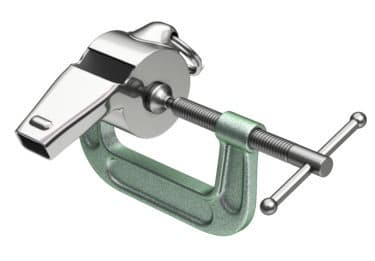
A whistleblower is entitled to this protection even if they do not receive a reward. The anti-retaliation provision applies to any whistleblower who possesses “a reasonable belief that the information the whistleblower is providing relates to a possible violation of the Commodity Exchange Act (CEA), or the rules or regulations thereunder, that has occurred, is ongoing, or is about to occur.”
The CFTC can take enforcement action against an employer that “retaliates against a whistleblower by discharge, demotion, suspension, direct or indirect threats or harassment, or any other manner of discrimination” because the whistleblower provided “information to the Commission after reporting the information through internal whistleblower, legal or compliance procedures.” 17 C.F.R. 165.20(b).
If you have suffered whistleblower retaliation, call the whistleblower retaliation lawyers at our firm at 202-262-8959.
CFTC Prohibits “Gag Clauses” in Confidentiality and Employment Agreements

No person may take any action to impede an individual from communicating directly with the Commission’s staff about a possible violation of the Commodity Exchange Act, including by enforcing, or threatening to enforce, a confidentiality agreement or predispute arbitration agreement with respect to such communications.
This prohibition is critical to the success of any whistleblower program because companies often use overly broad confidentiality agreements to silence and punish whistleblowers.
Experienced CFTC Whistleblower Lawyers
The whistleblower lawyers at Zuckerman Law have substantial experience representing corporate whistleblowers in whistleblower protection and whistleblower rewards cases.
Our team of attorneys includes a licensed Certified Public Accountant and Certified Fraud Examiner whose experience working at a large audit firm enhances the firm’s to investigate complex fraud schemes and prepare effective submissions to the CFTC. For a free, confidential consultation, click here or call us at 202-262-8959.
Violations of the CEA that Qualify for a CFTC Whistleblower Award
The largest CFTC whistleblower awards to date are $200 million, $45 million, and $30 million. The main types of violations that may qualify for a CFTC whistleblower award include:
Spoofing

Spoofing affects prices because the artificial increase in activity on either the buy or sell side of an asset creates the perception that there is a shift in the number of investors wanting to buy or sell. Spoofers place false bids or offers with the intent to cancel before executing so that they can then follow-through on genuine orders at a more favorable price. Often, spoofers use automated trading and algorithms to achieve their goals. According to a CFTC alert on spoofing related to CEA violations, the CFTC is concerned with conduct such as:
- manual and automated trading schemes that place and quickly cancel bids and offers in futures contracts in order to benefit other orders and/or positions;
- orders being quickly placed and canceled at or near the best bid or offer, especially if opposite-side orders are filled;
- multiple orders of the same size repeatedly and simultaneously being placed and canceled; and
- any scheme designed to cause prices to artificially move.
Examples of CFTC spoofing enforcement actions include:
- In November 2019, the CFTC imposed $67.4 million in sanctions against Tower Research Capital LLC, a proprietary trading firm, arising from a manipulative and deceptive scheme. On thousands of occasions, three former Tower traders, placed orders to buy or sell futures contracts with the intent to cancel those orders prior to execution. The traders often used an order splitter to enter several smaller, randomly-sized orders in an attempt to obscure their scheme from other market participants. According to a CFTC press release, “[t]he traders engaged in this scheme to induce other market participants to trade against their genuine orders—by intentionally sending a false signal to the market that they wanted to buy or sell the number of contracts specified in the spoof orders and creating a false impression of supply or demand—so that the genuine orders would fill sooner, at better prices, or in larger quantities than they otherwise would.”
- In August 2021, a federal jury convicted Edward Bases and John Pacilio, two former Merrill Lynch traders, for engaging in a multi-year fraud scheme to manipulate the precious metals market. According to a press release announcing the action, the two traders fraudulently pushed market prices up or down by routinely placing large “spoof” orders in the precious metals futures markets that they did not intend to fill. After manipulating the market, Bases and Pacilio executed trades at favorable prices for their own gain, and to the detriment of other traders. The DOJ’s Indictment detailed how Bases and Pacilio discussed their intent to “push” the market through spoofing in electronic chat conversations.
- In September 2020, JPMorgan Chase & Co. agreed to pay disgorgement of $920 million in parallel actions brought by the CFTC, DOJ, and the SEC engaging in manipulative trading of U.S. Treasury securities. According to the SEC’s order, certain traders on J.P. Morgan Securities’ Treasuries trading desk placed genuine orders to buy or sell a particular Treasury security, while nearly simultaneously placing spoofing orders, which the traders did not intend to execute, for the same series of Treasury security on the opposite side of the market. The spoofing orders were intended to create a false appearance of buy or sell interest, which would induce other market participants to trade against the genuine orders at prices that were more favorable to J.P. Morgan Securities than J.P. Morgan Securities otherwise would have been able to obtain.
Corrupt Practices

Companies and individuals engaging in foreign corrupt practices should recognize that this sort of misconduct might constitute fraud, manipulation, false reporting, or a number of other types of violations under the CEA, and thus be subject to enforcement actions brought by the CFTC. Bribes might be employed, for example, to secure business in connection with regulated activities like trading, advising, or dealing in swaps or derivatives. Corrupt practices might be used to manipulate benchmarks that serve as the basis for related derivatives contracts. Prices that are the product of corruption might be falsely reported to benchmarks. Or corrupt practices in any number of forms might alter the prices in commodity markets that drive U.S. derivatives prices. We currently have open investigations involving similar conduct.
In December 2020, the CFTC exercised that authority by imposing a $95 million civil penalty to settle charges against Vitol Inc, for manipulative and deceptive conduct involving foreign corruption and physical and derivatives trading in the U.S. and global oil market. The CFTC found that “Vitol committed fraud by making corrupt payments (e.g., bribes and kickbacks) to employees and agents of certain state-owned entities (SOEs) in Brazil, Ecuador, and Mexico to obtain preferential treatment and access to trades with the SOEs to the detriment of the SOEs and other market participants.” The corrupt payments were concealed by funneling them through offshore bank accounts or to shell entities, and at times, issuing deceptive invoices for purported “market intelligence” or “sell support.” The objective of these illicit payments was to secure unlawful competitive advantages in trading physical oil products and derivatives.
Trading on Material Nonpublic Information

The fraud or manipulation must be in connection with any swap, or contract of sale of any commodity in interstate commerce, or contract for future delivery on or subject to the rules of any registered entity. Examples of prohibited trading include:
- trading on material nonpublic information (MNPI) that was obtained by fraud or deception;
- trading on market-moving information that the source had a duty to protect;
- brokers front running customer orders or taking the other side of any customer order without consent; and
- improperly disclosing MNPI or using MNPI provided by a counterparty without the counterparty’s consent.
An example of the CFTC enforcing its prohibition against the misappropriation of MNPI is a September 29, 2016 enforcement taken against Jon P. Ruggles for engaging in fraudulent, fictitious, and non-competitive trades in crude oil and heating oil futures and options and RBOB gasoline futures on the NYMEX. The CFTC’s order settling the charges requires Ruggles to disgorge ill-gotten gains totaling $3,501,306, imposes a civil monetary penalty of $1.75 million, and permanently bans him from trading and registering with the CFTC. Ruggles, who was responsible for developing his former employer’s fuel hedging strategies and for executing the employer’s trades in certain NYMEX products, misappropriated the employer’s trading information for his own benefit in personal accounts that he controlled.
Benchmark Rates Manipulation
In a benchmark-rate-manipulation scheme, individuals seek to increase or decrease impartial global reference rates for their own financial gain. This misconduct is typically associated with the U.S. Dollar International Swaps and Derivatives Association Fix (USD ISDAFIX), benchmark-swap rates, LIBOR, Euribor, and other foreign interest-rate benchmarks.
On May 25, 2016, the CFTC ordered Citibank to pay $250 million for attempted manipulation and false reporting of USD ISDAFIX benchmark-swap rates. According to a CFTC press release, Citibank traders “attempted to manipulate and made false reports concerning the USD ISDAFIX by skewing the Bank’s USD ISDAFIX submissions . . . in order to benefit the Bank’s trading positions at the expense of its derivatives counterparties.” The CFTC uncovered numerous instances of Citibank’s USD ISDAFIX misconduct through the bank’s exotic traders’ instant messages. In March 2008, one of Citibank’s exotics traders stated in separate instant messages to other market participants that “[I] moved the screen btw” and “[I] moved the screen to 183 on 2s10s…[One of Citibank’s swaps traders] is pretty good at it,” and “[I] push the 2s10s swap on the screen to 183.4, very proud of myself.”
How the CFTC Determines Whistleblower Awards
According to the CFTC’s Enforcement Manual, “[w]hen the CFTC obtains a judicial or administrative order that—by itself or together with judgments or orders in related CFTC enforcement actions or Related Actions brought by certain other entities—imposes monetary sanctions exceeding $1,000,000, then the order becomes a covered judicial or administrative action upon which the CFTC may pay out whistleblower awards. The WBO will then post a Notice of Covered Action, and whistleblowers may begin applying for awards.”
A recent CFTC order awarding $10 million to a CFTC whistleblower clarifies that the CFTC employs a flexible approach to weighing the positive and negative award criteria and no one factor is dispositive:
The analytical framework in the Rules provides general principles without mandating a particular result. The criteria for determining the amount of an award in Rule 165.9, 17 C.F.R. § 165.9, are not listed in any order of importance and are not assigned relative importance. Rule 165.9(b) provides a list of factors that may increase the award amount, and Rule 165.9(c) provides a list of factors that may decrease the award amount. However, the Rules do not specify how much any factor in Rule 165.9(b) or (c) should increase or decrease the award percentage. Not satisfying any one of the positive factors does not mean that the award percentage must be less than 30%. and the converse is true. Not having any one of the negative factors does not mean the award percentage must be greater than 10%. These principles serve to prevent a vital whistleblower from being penalized for not satisfying the positive factors. For example, a whistleblower who provides the Commission with significant information and substantial assistance such as testifying at trial and producing documents containing direct evidence of violations could receive 30% even if the whistleblower did not participate in any internal compliance systems. In contrast, in order to prevent a windfall, a whistleblower who provides some useful but partial information and limited assistance to the Commission may receive 10% even if none of the negative factors were present.
Key Rules Governing CFTC Whistleblower Award Eligibility
- A whistleblower may be eligible for an award by providing the Commission original information without being the original source of the information. [Rule 165.5(b)]
- A whistleblower retains eligibility for an award based on information provided by the whistleblower to certain specified persons or authorities, now to include foreign futures authorities, prior to the time that the whistleblower provided the information to the Commission. [Rule 165.2(i)(2); Rule 165.2(l)(2)]
- Where a whistleblower first provides information to certain specified persons or authorities before reporting to the Commission, the timeframe for a whistleblower to submit a Form TCR (Tip, Complaint or Referral) to the Commission has been extended from 120 days to 180 days. If a whistleblower submits a Form TCR within this 180-day period after reporting to the other person or authority, the Commission will consider the whistleblower to have provided information to the Commission as of the date of the whistleblower’s original disclosure to the other person or authority. [Rule 165.2(i)(3); Rule 165.2(l)(2)]
- The Commission may waive its procedural requirements based upon a showing of extraordinary circumstances. [Rule 165.5(c)]
Resources About CFTC Whistleblower Reward Program
CFTC Whistleblower Statute, 7 U.S.C. § 26
CFTC Whistleblower Rules, 17 C.F.R. pt. 165
Dodd-Frank Act Provision Creating CFTC Whistleblower Reward Program
§26. Commodity whistleblower incentives and protection
(a) Definitions
In this section:
(1) Covered judicial or administrative action
The term “covered judicial or administrative action” means any judicial or administrative action brought by the Commission under this chapter that results in monetary sanctions exceeding $1,000,000.
(2) Fund
The term “Fund” means the Commodity Futures Trading Commission Customer Protection Fund established under subsection (g).
(3) Monetary sanctions
The term “monetary sanctions”, when used with respect to any judicial or administrative action means—(A) any monies, including penalties, disgorgement, restitution, and interest ordered to be paid; and(B) any monies deposited into a disgorgement fund or other fund pursuant to section 7246(b) of title 15, as a result of such action or any settlement of such action.
(4) Original information
The term “original information” means information that—(A) is derived from the independent knowledge or analysis of a whistleblower;(B) is not known to the Commission from any other source, unless the whistleblower is the original source of the information; and(C) is not exclusively derived from an allegation made in a judicial or administrative hearing, in a governmental report, hearing, audit, or investigation, or from the news media, unless the whistleblower is a source of the information.
(5) Related action
The term “related action”, when used with respect to any judicial or administrative action brought by the Commission under this chapter, means any judicial or administrative action brought by an entity described in subclauses (I) through (VI) of subsection (h)(2)(C) that is based upon the original information provided by a whistleblower pursuant to subsection (a) that led to the successful enforcement of the Commission action.
(6) Successful resolution
The term “successful resolution”, when used with respect to any judicial or administrative action brought by the Commission under this chapter, includes any settlement of such action.
(7) Whistleblower
The term “whistleblower” means any individual, or 2 or more individuals acting jointly, who provides information relating to a violation of this chapter to the Commission, in a manner established by rule or regulation by the Commission.
(b) Awards
(1) In general
In any covered judicial or administrative action, or related action, the Commission, under regulations prescribed by the Commission and subject to subsection (c), shall pay an award or awards to 1 or more whistleblowers who voluntarily provided original information to the Commission that led to the successful enforcement of the covered judicial or administrative action, or related action, in an aggregate amount equal to—(A) not less than 10 percent, in total, of what has been collected of the monetary sanctions imposed in the action or related actions; and(B) not more than 30 percent, in total, of what has been collected of the monetary sanctions imposed in the action or related actions.
(2) Payment of awards
Any amount paid under paragraph (1) shall be paid from the Fund.
(c) Determination of amount of award; denial of award
(1) Determination of amount of award
(A) Discretion
The determination of the amount of an award made under subsection (b) shall be in the discretion of the Commission.
(B) Criteria
In determining the amount of an award made under subsection (b), the Commission—(i) shall take into consideration—(I) the significance of the information provided by the whistleblower to the success of the covered judicial or administrative action;(II) the degree of assistance provided by the whistleblower and any legal representative of the whistleblower in a covered judicial or administrative action;(III) the programmatic interest of the Commission in deterring violations of the 1 chapter (including regulations under the 1 chapter) by making awards to whistleblowers who provide information that leads to the successful enforcement of such laws; and(IV) such additional relevant factors as the Commission may establish by rule or regulation; and
(ii) shall not take into consideration the balance of the Fund.
(2) Denial of award
No award under subsection (b) shall be made—(A) to any whistleblower who is, or was at the time the whistleblower acquired the original information submitted to the Commission, a member, officer, or employee of—(i) a appropriate regulatory agency;(ii) the Department of Justice;(iii) a registered entity;(iv) a registered futures association;(v) a self-regulatory organization as defined in section 78c(a) of title 15; or(vi) a law enforcement organization;(B) to any whistleblower who is convicted of a criminal violation related to the judicial or administrative action for which the whistleblower otherwise could receive an award under this section;(C) to any whistleblower who submits information to the Commission that is based on the facts underlying the covered action submitted previously by another whistleblower;(D) to any whistleblower who fails to submit information to the Commission in such form as the Commission may, by rule or regulation, require.
(d) Representation
(1) Permitted representation
Any whistleblower who makes a claim for an award under subsection (b) may be represented by counsel.
(2) Required representation
(A) In general
Any whistleblower who anonymously makes a claim for an award under subsection (b) shall be represented by counsel if the whistleblower submits the information upon which the claim is based.
(B) Disclosure of identity
Prior to the payment of an award, a whistleblower shall disclose the identity of the whistleblower and provide such other information as the Commission may require, directly or through counsel for the whistleblower.
(e) No contract necessary
No contract with the Commission is necessary for any whistleblower to receive an award under subsection (b), unless otherwise required by the Commission, by rule or regulation.
(f) Appeals
(1) In general
Any determination made under this section, including whether, to whom, or in what amount to make awards, shall be in the discretion of the Commission.
(2) Appeals
Any determination described in paragraph (1) may be appealed to the appropriate court of appeals of the United States not more than 30 days after the determination is issued by the Commission.
(3) Review
The court shall review the determination made by the Commission in accordance with section 7064 2 of title 5.
(g) Commodity Futures Trading Commission Customer Protection Fund
(1) Establishment
There is established in the Treasury of the United States a revolving fund to be known as the “Commodity Futures Trading Commission Customer Protection Fund”.
(2) Use of Fund
The Fund shall be available to the Commission, without further appropriation or fiscal year limitation, for—(A) the payment of awards to whistleblowers as provided in subsection (a); and(B) the funding of customer education initiatives designed to help customers protect themselves against fraud or other violations of this chapter, or the rules and regulations thereunder.
(3) Deposits and credits
There shall be deposited into or credited to the Fund:
(A) Monetary sanctions
Any monetary sanctions collected by the Commission in any covered judicial or administrative action that is not otherwise distributed to victims of a violation of this chapter or the rules and regulations thereunder underlying such action, unless the balance of the Fund at the time the monetary judgment is collected exceeds $100,000,000.
(B) Additional amounts
If the amounts deposited into or credited to the Fund under subparagraph (A) are not sufficient to satisfy an award made under subsection (b), there shall be deposited into or credited to the Fund an amount equal to the unsatisfied portion of the award from any monetary sanction collected by the Commission in any judicial or administrative action brought by the Commission under this chapter that is based on information provided by a whistleblower.
(C) Investment income
All income from investments made under paragraph (4).
(4) Investments
(A) Amounts in Fund may be invested
The Commission may request the Secretary of the Treasury to invest the portion of the Fund that is not, in the Commission’s judgment, required to meet the current needs of the Fund.
(B) Eligible investments
Investments shall be made by the Secretary of the Treasury in obligations of the United States or obligations that are guaranteed as to principal and interest by the United States, with maturities suitable to the needs of the Fund as determined by the Commission.
(C) Interest and proceeds credited
The interest on, and the proceeds from the sale or redemption of, any obligations held in the Fund shall be credited to, and form a part of, the Fund.
(5) Reports to Congress
Not later than October 30 of each year, the Commission shall transmit to the Committee on Agriculture, Nutrition, and Forestry of the Senate, and the Committee on Agriculture of the House of Representatives a report on—(A) the Commission’s whistleblower award program under this section, including a description of the number of awards granted and the types of cases in which awards were granted during the preceding fiscal year;(B) customer education initiatives described in paragraph (2)(B) that were funded by the Fund during the preceding fiscal year;(C) the balance of the Fund at the beginning of the preceding fiscal year;(D) the amounts deposited into or credited to the Fund during the preceding fiscal year;(E) the amount of earnings on investments of amounts in the Fund during the preceding fiscal year;(F) the amount paid from the Fund during the preceding fiscal year to whistleblowers pursuant to subsection (b);(G) the amount paid from the Fund during the preceding fiscal year for customer education initiatives described in paragraph (2)(B);(H) the balance of the Fund at the end of the preceding fiscal year; and(I) a complete set of audited financial statements, including a balance sheet, income statement, and cash flow analysis.
(h) Protection of whistleblowers
(1) Prohibition against retaliation
(A) In general
No employer may discharge, demote, suspend, threaten, harass, directly or indirectly, or in any other manner discriminate against, a whistleblower in the terms and conditions of employment because of any lawful act done by the whistleblower—(i) in providing information to the Commission in accordance with subsection (b); or(ii) in assisting in any investigation or judicial or administrative action of the Commission based upon or related to such information.
(B) Enforcement
(i) Cause of action
An individual who alleges discharge or other discrimination in violation of subparagraph (A) may bring an action under this subsection in the appropriate district court of the United States for the relief provided in subparagraph (C), unless the individual who is alleging discharge or other discrimination in violation of subparagraph (A) is an employee of the Federal Government, in which case the individual shall only bring an action under section 1221 of title 5.
(ii) Subpoenas
A subpoena requiring the attendance of a witness at a trial or hearing conducted under this subsection may be served at any place in the United States.
(iii) Statute of limitations
An action under this subsection may not be brought more than 2 years after the date on which the violation reported in subparagraph (A) is committed.
(C) Relief
Relief for an individual prevailing in an action brought under subparagraph (B) shall include—(i) reinstatement with the same seniority status that the individual would have had, but for the discrimination;(ii) the amount of back pay otherwise owed to the individual, with interest; and(iii) compensation for any special damages sustained as a result of the discharge or discrimination, including litigation costs, expert witness fees, and reasonable attorney’s fees.
(2) Confidentiality
(A) In general
Except as provided in subparagraphs (B) and (C), the Commission, and any officer or employee of the Commission, shall not disclose any information, including information provided by a whistleblower to the Commission, which could reasonably be expected to reveal the identity of a whistleblower, except in accordance with the provisions of section 552a of title 5, unless and until required to be disclosed to a defendant or respondent in connection with a public proceeding instituted by the Commission or any entity described in subparagraph (C). For purposes of section 552 of title 5, this paragraph shall be considered a statute described in subsection (b)(3)(B) of such section 552.
(B) Effect
Nothing in this paragraph is intended to limit the ability of the Attorney General to present such evidence to a grand jury or to share such evidence with potential witnesses or defendants in the course of an ongoing criminal investigation.
(C) Availability to government agencies
(i) In general
Without the loss of its status as confidential in the hands of the Commission, all information referred to in subparagraph (A) may, in the discretion of the Commission, when determined by the Commission to be necessary or appropriate to accomplish the purposes of this chapter and protect customers and in accordance with clause (ii), be made available to—(I) the Department of Justice;(II) an appropriate department or agency of the Federal Government, acting within the scope of its jurisdiction;(III) a registered entity, registered futures association, or self-regulatory organization as defined in section 78c(a) of title 15;(IV) a State attorney general in connection with any criminal investigation;(V) an appropriate department or agency of any State, acting within the scope of its jurisdiction; and(VI) a foreign futures authority.
(ii) Maintenance of information
Each of the entities, agencies, or persons described in clause (i) shall maintain information described in that clause as confidential, in accordance with the requirements in subparagraph (A).
(iii) Study on impact of FOIA exemption on Commodity Futures Trading Commission
(I) Study
The Inspector General of the Commission shall conduct a study—(aa) on whether the exemption under section 552(b)(3) of title 5 (known as the Freedom of Information Act) established in paragraph (2)(A) aids whistleblowers in disclosing information to the Commission;(bb) on what impact the exemption has had on the public’s ability to access information about the Commission’s regulation of commodity futures and option markets; and(cc) to make any recommendations on whether the Commission should continue to use the exemption.
(II) Report
Not later than 30 months after July 21, 2010, the Inspector General shall—(aa) submit a report on the findings of the study required under this clause to the Committee on Banking, Housing, and Urban Affairs of the Senate and the Committee on Financial Services of the House of Representatives; and(bb) make the report available to the public through publication of a report on the website of the Commission.
(3) Rights retained
Nothing in this section shall be deemed to diminish the rights, privileges, or remedies of any whistleblower under any Federal or State law, or under any collective bargaining agreement.
(i) Rulemaking authority
The Commission shall have the authority to issue such rules and regulations as may be necessary or appropriate to implement the provisions of this section consistent with the purposes of this section.
(j) Implementing rules
The Commission shall issue final rules or regulations implementing the provisions of this section not later than 270 days after July 21, 2010.
(k) Original information
Information submitted to the Commission by a whistleblower in accordance with rules or regulations implementing this section shall not lose its status as original information solely because the whistleblower submitted such information prior to the effective date of such rules or regulations, provided such information was submitted after July 21, 2010.
(l) Awards
A whistleblower may receive an award pursuant to this section regardless of whether any violation of a provision of this chapter, or a rule or regulation thereunder, underlying the judicial or administrative action upon which the award is based occurred prior to July 21, 2010.
(m) Provision of false information
A whistleblower who knowingly and willfully makes any false, fictitious, or fraudulent statement or representation, or who makes or uses any false writing or document knowing the same to contain any false, fictitious, or fraudulent statement or entry, shall not be entitled to an award under this section and shall be subject to prosecution under section 1001 of title 18.
(n) Nonenforceability of certain provisions waiving rights and remedies or requiring arbitration of disputes
(1) Waiver of rights and remedies
The rights and remedies provided for in this section may not be waived by any agreement, policy form, or condition of employment including by a predispute arbitration agreement.
(2) Predispute arbitration agreements
No predispute arbitration agreement shall be valid or enforceable, if the agreement requires arbitration of a dispute arising under this section.(Sept. 21, 1922, ch. 369, §23, as added Pub. L. 111–203, title VII, §748, July 21, 2010, 124 Stat. 1739.)
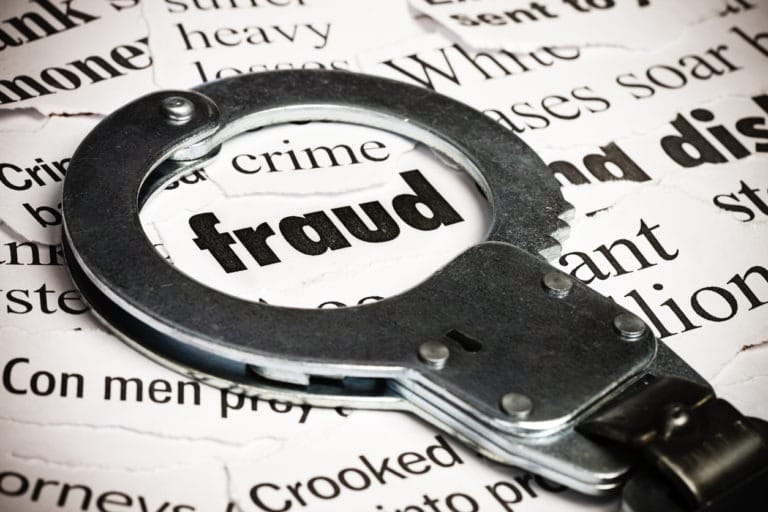
Investment Fraud Whistleblower Lawyers
The SEC protects investors against investment fraud, and it incentivizes whistleblowers to help expose such fraud and other violations of the federal securities laws. The Dodd-Frank Act, which was signed into law in 2010, entitles whistleblowers to receive a reward if their original information leads to a successful enforcement action with total monetary sanctions of more than $1 million.
Under the SEC Whistleblower Program, a whistleblower may receive an award of between 10% and 30% of the total monetary sanctions collected. If represented by counsel, a whistleblower may submit a tip anonymously to the SEC. The Dodd-Frank Act also protects SEC whistleblowers against retaliation.
Since 2012, the SEC Whistleblower Office has issued nearly $1.8 billion in awards to whistleblowers, including awards to our clients.
If you have information that may qualify for an SEC whistleblower award, contact the Director of our SEC whistleblower practice at [email protected] or call our leading SEC whistleblower lawyers at (202) 930-5901 or (202) 262-8959.
All inquiries are confidential. In conjunction with our courageous clients, we have helped the SEC halt multi-million dollar investment schemes, expose violations at large publicly traded companies, and return funds to defrauded investors.




Recently the Association of Certified Fraud Examiners published a profile of Matt Stock’s success working with whistleblowers to fight fraud:
SEC Targeting Investment Fraud
The SEC recently increased staffing in its investment adviser/investment company examination program by 20%, according to OCIE Director Marc Wyatt in a speech. Additionally, the SEC’s 2018 enforcement priorities, 2019 enforcement priorities, and 2020 enforcement priorities indicate the SEC will pay particular attention to:
- Disclosures of the costs of investing;
- Electronic investment advice;
- Wrap fee programs;
- Never-before-examined investment advisers;
- Senior investors and retirement accounts and products; and
- Mutual funds and exchange-traded funds (ETFs).
In addition, the SEC will continue to pay attention to other fraudulent offerings, such as Ponzi schemes and unregistered securities offerings.
Whistleblowers Are Critical to Enforcement of Anti-Fraud Laws
Despite the increased resources, whistleblowers remain a key source of information for the SEC. Many registered investment advisers are regulated solely by the SEC, and unlike registered broker-dealers, investment advisers have no self-regulatory organization. Further, more than 2,000 new investment advisers have registered with the SEC within the past two years.
Whistleblowers play a vital role in helping the SEC enforce laws when its resources are stretched thin. As SEC Chair Mary Jo White stated, “[Whistleblowers] provide an invaluable public service, and they should be supported…We have seen enough to know that whistleblowers increase our efficiency and conserve our scarce resources.”
Examples of Investment Company Act Violations
The SEC defines investment companies as any corporation, business trust, partnership, or limited liability company that issues securities and is primarily engaged in the business of investing in securities. The SEC may bring an enforcement action against an investment adviser for a host of violations, including:
- Failing to disclose fees, charges, and conflicts of interest;
- Failing to maintain adequate written policies and procedures;
- Parking;
- Steering;
- False or misleading advertising; and
- Failing to safeguard customer data.
In the past year, notable areas of fraud that have produced substantial settlements and penalties include:
Failing to Disclose Fees, Charges, or Conflicts of Interest
Section 206 of the Investment Adviser Act of 1940 (IAA) prohibits fraudulent and deceptive conduct, and Section 207 proscribes material misstatements in investment adviser registration applications or reports. The SEC relies on these statutory authorities to bring enforcement actions when investment advisers fail to disclose conflicts of interest, as well as client fees or charges.
For example, in December 2015, two JP Morgan wealth management subsidiaries agreed to pay $267 million to settle charges that they failed to disclose conflicts of interest to clients. According to the SEC order, the investment advisory business and the bank invested clients in the firm’s own proprietary investment products without properly disclosing this preference. In a parallel action, JP Morgan Chase Bank agreed to pay an additional $40 million penalty to the U.S. Commodity Futures Trading Commission (CFTC). (Note: the CFTC also has a whistleblower program that offers rewards for original information that leads to successful enforcement actions.)
In the SEC’s press release, the Director of the Enforcement Division, Andrew J. Ceresney, stressed the importance of adequate disclosure concerning conflicts of interest. He stated: “Firms have an obligation to communicate all conflicts so a client can fairly judge the investment advice they are receiving. These J.P. Morgan subsidiaries failed to disclose that they preferred to invest client money in firm-managed mutual funds and hedge funds, and clients were denied all the facts to determine why investment decisions were being made by their investment advisers.”
Other notable recent actions for failures to disclose conflicts, fees, or charges include:
- In October 2015, three private equity fund advisers within the Blackstone Group paid almost $39 million to resolve allegations they violated Section 206 for failing to disclose accelerated monitoring fees and a conflict of interest. Nearly $29 million was returned to investors;
- In November 2015, Fenway Partners LLP and four of its employees paid more than $10 million to settle charges that it violated Section 206 by failing to disclose a conflict of interest regarding the payment of fund and portfolio company assets to former employees and an affiliated entity.
- In September 2016, WL Ross & Co. LLC paid $2.3 million to resolve charges that it failed to disclose material information regarding fee allocation practices, in violation of Sections 206(2) and 206(4).
Misrepresenting Investments
Lying to investors about how funds will be invested violates several anti-fraud provisions of the federal securities laws. In January 2018, the SEC obtained approximately $8 million in disgorgement and penalties for a scheme in which an unregistered broker lied to prospective investors by stating that their funds would be invested in a low-risk, private off-shore trading program when in fact the investor funds were misused and misappropriated. This scheme raised $15.8 million from 26 investors in eight states and entailed sending investors false profit statements and otherwise deceiving investors.
Failing to Maintain Adequate Written Policies and Procedures
Rule 206(4)-7 requires investment advisers to maintain written and policies and procedures reasonably designed to prevent violations of the IAA. An investment adviser’s failure to do so violates Section 206(4). The SEC routinely enforces this provision in conjunction with other charges. Some of the cases above included charges that the investment advisers also violated Rule 206(4)-7. Other examples include:
- On August 23, 2016, four private equity fund advisers affiliated with Apollo Global Management agreed to a $52.7 million settlement to resolve a variety of charges, including that the advisers violated Section 206(4) and Rule 206(4)-7 by failing to maintain adequate policies and procedures.
- On September 14, 2016, First Reserve Management LP resolved allegations, including that it had violated Rule 206(4)-7, for $3.5 million.
Parking and Steering
Parking and steering schemes may constitute fraudulent practices in violation of Section 206. Parking is a practice of prearranged trading that benefits one account over another. Unlawful steering occurs when an investment adviser directs a client to investments that will generate higher fees for the adviser, without disclosing the conflict of interest to clients. Recent parking and steering cases include:
- In December 2015, Morgan Stanley Investment Management agreed to pay $8.8 million to resolve the SEC’s claim that a portfolio manager colluded with a brokerage firm trader to trade at prearranged prices to the benefit of some client accounts, but the detriment of others.
- In March 2016, three AIG affiliates paid more than $9.5 million to settle charges that they steered clients to investments that put unnecessary charges on the investor but generated an additional $2 million in fees without disclosing the conflict of interest.
False or Misleading Advertising
Section 206 of the IAA, and Rule 206(4)-1 in particular, also regulates investment advisers’ advertisements. The rule limits testimonials and recommendations and prohibits false and misleading advertising. Past examples of false or misleading advertising/misconduct that led to or arose from the financial crisis include:
- Concealing risks, terms, and improper pricing from investors in CDOs and other complex structured products;
- Making misleading disclosures to investors about mortgage-related risks and exposure; and
- Concealing the extent of risky mortgage-related and other investments in mutual funds and other financial products.
This misconduct resulted in over 200 entities and individuals being charged by the SEC. More recent examples of false or misleading advertising include:
- In December 2014, the SEC announced that investment management firm F-Squared Investments agreed to pay $35 million for defrauding investors through false performance advertising about its flagship product “AlphaSector.” According to the SEC’s order, virtually “all of F-Squared’s claimed outperformance relative to the S&P 500 Index…is attributable to its data compilation error.” AlphaSector became F-Squared’s largest ETF strategy on the market, with approximately $28.5 billion in assets following the strategy.
- In August 2016, the SEC charged thirteen investment advisory firms a total of $2.2 million for negligently relying on claims by F-Squared Investments that its AlphaSector strategy had outperformed the S&P Index for several years. The Director of the SEC Enforcement Division at that time, Andrew Ceresney, said: “When an investment adviser echoes another firm’s performance claims in its own advertisements, it must verify the information first rather than merely accept it as fact. These [thirteen] advisers negligently passed many of F-Squared’s claims onto their own clients, who were consequently relying upon false and misleading information when making investment decisions.”
- In May 2017, the SEC charged Bryant United Capital Funding, Inc. with inappropriately raising more than $22.7 million from 100 investors across the country by falsely promising investors a risk-free, guaranteed minimum 30% annual returns on the investments. In addition, the fraudster falsely told investors that their funds were placed in a safe escrow account to serve solely as proof of funds to secure a line of credit for the investments.
Failing to Safeguard Customer Data
Morgan Stanley Smith Barney LLC agreed to pay a $1 million penalty to settle charges for its failure to protect customer data. According to the SEC order, the firm did not adopt written policies and procedures reasonably designed to protect customer data. Some of the data was hacked and even offered for sale online.
According to PwC’s 2016 crime survey, economic crime has outpaced company preparedness and as a result, U.S. organizations have experienced an increase in cybercrime compared to prior years. This will continue to be a priority enforcement area for the SEC. Companies should ensure compliance with federal securities laws, which require investment companies to adopt written policies and procedures reasonably designed to protect customer records and information.
Negligent Conduct Violates the IAA and Scienter is Not Required
Unlike many other laws dealing with fraudulent conduct, the IAA may be violated when the investment adviser is merely negligent, as opposed to specifically intending to defraud a client. For example, because Section 206(2) prohibits conduct that operates as a fraud, an investment adviser may engage in prohibited conduct merely through negligence.
2024 SEC Examination Priorities for Enforcement of the IAA
The SEC’s 2024 Examination Priorities clarify that particular examination focus will include:
- Marketing practice assessments for whether advisers, including advisers to private
funds, have: (1) adopted and implemented reasonably designed written policies
and procedures to prevent violations of the Advisers Act and the rules thereunder
including reforms to the Marketing Rule; (2) appropriately disclosed their marketing-
related information on Form ADV; and (3) maintained substantiation of their
processes and other required books and records. Marketing practice reviews will
also assess whether disseminated advertisements include any untrue statements of a
material fact, are materially misleading, or are otherwise deceptive and, as applicable,
comply with the requirements for performance (including hypothetical and
predecessor performance), third-party ratings, and testimonials and endorsements. - Compensation arrangement assessments focusing on: (1) fiduciary obligations of
advisers to their clients, including registered investment companies, particularly
with respect to the advisers’ receipt of compensation for services or other material
payments made by clients and others; (2) alternative ways that advisers try to
maximize revenue, such as revenue earned on clients’ bank deposit sweep programs;
and (3) fee breakpoint calculation processes, particularly when fee billing systems are
not automated. - Valuation assessments regarding advisers’ recommendations to clients to invest
in illiquid or difficult to value assets, such as commercial real-estate or private
placements. - Safeguarding assessments for advisers’ controls to protect clients’ material non-public
information, particularly when multiple advisers share office locations, have
significant turnover of investment adviser representatives, or use expert networks. - Disclosure assessments to review the accuracy and completeness of regulatory filings,
including Form CRS, with a particular focus on inadequate or misleading disclosures
and registration eligibility
SEC Whistleblower Program
Under the SEC Whistleblower Program, whistleblowers may be eligible for monetary awards when they voluntarily provide the SEC with original information about violations of federal securities laws that leads the SEC to bring a successful enforcement action resulting in monetary sanctions exceeding $1 million.
The SEC Whistleblower Program also protects the confidentiality of whistleblowers and does not disclose information that might directly or indirectly reveal a whistleblower’s identity. Furthermore, the Dodd-Frank Act protects whistleblowers from retaliation by their employers for reporting violations of securities laws.
Whistleblowers may file a tip with the SEC anonymously if they are represented by an attorney.
SEC Whistleblower Process
For more information about the SEC Whistleblower Program, see our eBook Tips from SEC Whistleblower Attorneys to Maximize an SEC Whistleblower Award. Click below to hear SEC whistleblower lawyer Matt Stock’s tips for SEC whistleblowers:
Washington DC SEC Whistleblower Attorneys Representing SEC Whistleblowers Nationwide
For more information about whistleblower rewards and bounties, contact the SEC whistleblower lawyers at leading whistleblower firm Zuckerman Law at 202-262-8959.
- See our column in Forbes: One Billion Reasons Why The SEC Whistleblower-Reward Program Is Effective.
- See our column in Going Concern: Sarbanes-Oxley 15 Years Later: Accountants Need to Speak Up Now More Than Ever.
- See our post in Accounting Today: Whistleblower Protections and Incentives for Auditors and Accountants.
- See our post in The Compliance and Ethics Blog: Shkreli Trial Reveals the Challenges Faced by Compliance Whistleblowers.
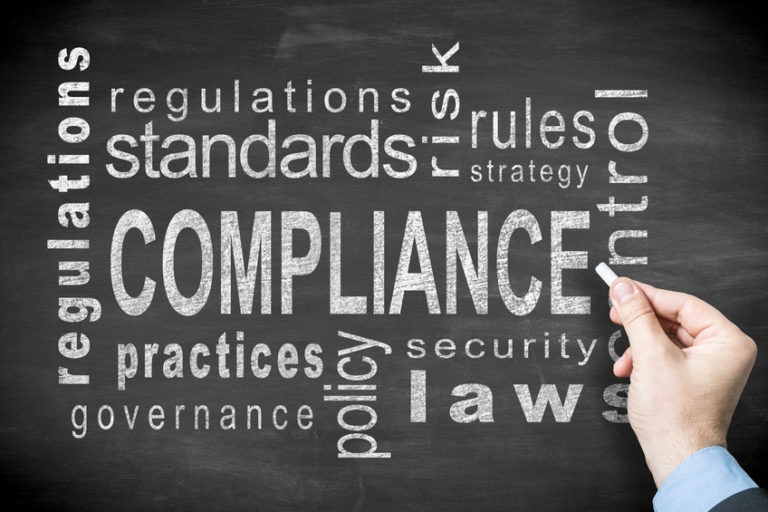
Increase in Accounting Fraud Whistleblower Tips

Contact us today to find out the strategies we have successfully employed to get awards for whistleblowers disclosing accounting fraud to the SEC.






According to the SEC Whistleblower Program’s 2020 Annual Report, a majority of whistleblowers tips submitted to the SEC each year relate to violations in corporate disclosures and financials (see examples of accounting violations in our Accounting Today article “The top 10 ways that companies cook the books,” which is also available here.):
- 2011: 51 corporate disclosures and financials tips
- 2012: 547 corporate disclosures and financials tips
- 2013: 557 corporate disclosures and financials tips
- 2014: 610 corporate disclosures and financials tips
- 2015: 687 corporate disclosures and financials tips
- 2016: 938 corporate disclosures and financials tips
- 2017: 954 corporate disclosures and financials tips
- 2018: 983 corporate disclosures and financials tips
- 2019: 1,107 corporate disclosures and financials tips
- 2020: 1,710 corporate disclosures and financials tips
A whistleblower providing original information about accounting fraud may be eligible to receive an award under the Dodd-Frank Act’s SEC Whistleblower Program. Even auditors and accountants are eligible to receive awards under the program.
If you have original information about accounting fraud that you would like to report to the SEC Whistleblower Office, contact the Director of our SEC whistleblower practice at [email protected] or call our leading SEC whistleblower lawyers at (202) 930-5901 or (202) 262-8959. All inquiries are confidential.
In conjunction with our courageous clients, our SEC whistleblower lawyers have helped the SEC halt multi-million dollar investment schemes, expose violations at large publicly traded companies, and return funds to defrauded investors.
Recently the Association of Certified Fraud Examiners published a profile of Matt Stock’s success working with whistleblowers to fight fraud:
See our article: How to Report Accounting Fraud and Earn an SEC Whistleblower Award.
SEC Whistleblower Program and Accounting Fraud

The SEC Whistleblower Program also protects the confidentiality of whistleblowers and does not disclose information that might directly or indirectly reveal a whistleblower’s identity. Whistleblowers can even submit a tip anonymously if represented by counsel.
In a 2016 keynote speech, the SEC Enforcement Director confirmed the SEC’s continued focus on issuer reporting and disclosure violations. To date, and as detailed in the SEC Division of Enforcement’s 2020 Annual Report, this focus has remained consistent:
“Integrity and accuracy in financial statements and issuer disclosures are critical to the functioning of our capital markets. During the last fiscal year, the Division maintained its ongoing focus on identifying and investigating securities laws violations involving different components of the financial reporting process.”
How to Qualify for an Accounting Fraud SEC Whistleblower Award
For more information about the SEC Whistleblower Program, see our eBook Tips from SEC Whistleblower Attorneys to Maximize an SEC Whistleblower Award. Click below to hear SEC whistleblower lawyer Matt Stock’s tips for SEC whistleblowers:
SEC Whistleblower Awards for Accounting Fraud Whistleblowers

If you have information that may qualify for an SEC whistleblower award, contact the Director of our SEC whistleblower practice at [email protected] or call our leading SEC whistleblower lawyers at (202) 930-5901 or (202) 262-8959.
All inquiries are confidential. In conjunction with our courageous clients, we have helped the SEC halt multi-million dollar investment schemes, expose violations at large publicly traded companies and return funds to defrauded investors.
Accounting Fraud and Abuses & SEC Enforcement Actions
Former SEC Chair Mary Jo White emphasized that [c]omprehensive, accurate, and reliable financial reporting is the bedrock upon which our markets are based, and is essential to ensuring public confidence in them.” As such, the SEC has increased the number of enforcement actions for accounting fraud and other accounting violations, including:
Improper Revenue Recognition
According to a Report Pursuant to Section 704 of the Sarbanes-Oxley Act of 2002, during the five years preceding the enactment of SOX, the “SEC brought the greatest number of actions [involving issuer financial-report violations] in the area of improper revenue recognition: 126 of the 227 enforcement matters involved such conduct, including the fraudulent reporting of fictitious sales, improper timing of revenue recognition, and improper valuation of revenue.” The following enforcement actions are examples of improper revenue recognition schemes that could qualify for an SEC award.
The SEC charged SMF Energy Corp. and its officers with accounting fraud for inflating revenues through a fraudulent billing scheme. According to the SEC’s complaint, the billing scheme “increased the amount of gallons of fuel invoiced beyond what was actually delivered to customers,” which resulted in false and misleading disclosures in the company’s SEC filings. The billing scheme circumvented SMF Energy’s internal accounting controls and led to, among other things, materially overstated revenues, profit margins, shareholders’ equity, and net income in its SEC filings.
The scheme resulted in several SEC violations, including the failure to maintain a system of internal controls sufficient to ensure that its customers were charged in accordance with their respective contracts, the failure to record revenues and liabilities in accordance with GAAP, and the failure to design (or to cause others to design) disclosure controls and procedures that would have caused the company to disclose and report that it recognized revenue from improper charges to customers. The SEC disgorged all ill-gotten profits and proceeds received as a result of the actions.
The SEC charged MedQuist with accounting fraud when it secretly inflated customer bills by increasing the number of lines of medical test that it purportedly transcribed. According to the SEC’s complaint, the “scheme was able to continue for several years because the unit of measure upon which bills to many customers were based . . . could not be verified by customers. Knowing that its customers were unable to verify line counts on bills, [MedQuist] . . . manipulate[d] line counts on customer bills to reach specific revenue and margin targets.” MedQuist and its Director, President, and Chief Operating Officer were charged with violating securities laws.
The SEC charged L3 for failing to maintain accurate books and records and failing to maintain adequate internal controls when the company improperly recorded $17.9M in revenue from a contract by creating invoices associated with unresolved claims that were not delivered when the revenue was recorded. According to the SEC’s order, employees “immediately reported concerns regarding potential violations of L3’s accounting policies and internal accounting controls to L3’s internal ethics department,” but the subsequent ethics review failed to uncover the misconduct due, in part, to “a failure by ethics investigators to adequately understand the billing process.”
The SEC charged IGI Inc. with fraudulent accounting practices and reporting, inadequate internal controls, and books-and-records violations for engaging in fraudulent sales-cutoff practices and other improper accounting practices. As a result of the improper sales-cutoff practices, “IGI misstated its assets, revenues, and net income” for several years.
The SEC charged Anicom Inc. and its directors with violating federal securities laws after the company falsely reported millions of dollars of nonexistent sales to inflate net income by more than $20M. According to the SEC’s complaint, Anicom included in its financial statements millions of dollars in sales to a fictitious customer, SCL Integration.
Tangoe paid $1.5 million to settle charges that it reported revenue prematurely for work that had not been performed and for transactions that did not produce any revenue at all. According to the complaint, the violations included: “1) counting customers’ prepayments for future services as current revenue; 2) improperly recording a loan from a business partner as revenue; 3) recording revenue in the wrong reporting periods; 4) prematurely recording revenue from contingent fee arrangements; 5) recording revenue from customers who were unlikely to pay; 6) violating the accounting rules for bad debt reserves; and 7) prematurely counting revenue from long-term contracts with ongoing obligations.”
Inadequate Internal Controls over Financial Reporting (ICFR)
On February 9, 2016, the SEC announced that Monsanto agreed to pay an $80 million penalty for inadequate internal accounting controls. According to the SEC’s order, the company failed to properly account for millions of dollars in rebates offered to retailers and distributors of Roundup after generic competition had undercut its prices and caused the company to lose significant share in the market. Monsanto booked substantial amounts of revenue from sales incentivized by the rebate program, but failed to recognize all of the related program costs at the same time. A whistleblower received a more than $22 million award for disclosing this fraud to the SEC.
Improper Accounting of Expenses
Penn West, a Canadian-based oil and gas company has agreed to pay $8.5 million in civil penalties for fraudulently moving hundreds of millions of dollars in expenses from operating expense accounts to capital expenditure accounts. This accounting fraud artificially reduced the company’s operating costs by as much as 20 percent in certain periods. The object of the scheme was to deceive investors about a key publicly reported metric concerning the cost of oil extraction and processing needed to sell a barrel of oil.
As alleged in the SEC’s complaint, Defendants engaged in three principal types of improper accounting practices in furtherance of their scheme:
- Defendants improperly moved certain expenses that had been recorded in Penn West’s operating expense accounts to its capital expenditure accounts, a reclassification practice known internally at Penn West as “reclass to capital.” This had the effect of moving the expenses from the company’s income statement, where they appeared as expenses, to the company’s balance sheet, where they appeared as assets, thus lowering the company’s reported operating expenses and making it appear that Penn West was investing capital in support of increased production.
- Defendants improperly moved certain operating expenses to Penn West’s royalty account, a line item on the company’s income statement intended to show money expended paying royalties to the owners of land on which Penn West drilled. This practice was referred to internally as “reclass to royalty.”
- Defendants improperly took excess operating expense amounts that had been accrued in prior accounting periods, but not expended, which should have been written off, and instead reduced those accruals in subsequent periods to reduce Penn West’s operating expenses and make them appear more consistent over the course of the year. This practice was referred to internally as “accrual softening.”
Channel-Stuffing
On April 27, 2015, the SEC obtained a $131 million judgment against Symbol Technologies Inc. for fraudulent revenue-recognition practices, including quarter-end “stuffing” of Symbol’s distribution channel to help meet revenue and earnings targets imposed by its CEO.
On August 4, 2004, Bristol-Myers Squibb agreed to pay a $150 million fine for selling excessive amounts of pharmaceutical products to its wholesalers ahead of demand in order to falsely inflate earnings. The channel-stuffing resulted in the company improperly recognizing revenue from $1.5 billion in sales to its two largest wholesalers. In addition, the SEC filed charges against two former Bristol-Myers officers for the fraudulent earnings management scheme.
For additional information, see our article on how to report channel stuffing and earn an SEC whistleblower award.
Fraudulent Management Estimates and “Cookie Jar” Reserves
On June 5, 2015, Computer Sciences Corporation agreed to pay $190 million to settle charges that the company engaged in a wide-range accounting-and-disclosure fraud that materially overstated its earnings and concealed from investors significant problems with its largest contract. According to the SEC’s order, the company’s former Finance Director prepared a fraudulent accounting model in which he included made-up assumptions to avoid reporting a negative hit to the company’s earnings. The company also overstated its earnings by using “cookie jar” reserves and by failing to record expenses as required.
Improper Post-Closing Entries
On September 27, 2016, Weatherford International agreed to pay a $140 million penalty to settle charges that it inflated its earnings by using deceptive income-tax accounting. According to the SEC’s order, Weatherford fraudulently lowered its year-end provision for income taxes each year so the company could better align its earnings results with its earlier-announced projections and analysts’ expectations. The company lowered its year-end provision for income taxes by making numerous post-closing adjustments to fill gaps and meet its previously disclosed effective tax rate.
Auditor-Independence Violations
On September 19, 2016, the SEC announced that public accounting firm Ernst & Young had agreed to pay $9.3 million to settle charges that two of the firm’s audit partners had “inappropriately close personal relationships” with their clients and thereby violated independence rules designed to ensure that firms maintain their objectivity and impartiality during audits. In one of the SEC’s orders, an EY audit partner was having a romantic relationship with a client’s Chief Accounting Officer. The main EY audit partner on the account noticed signs of this romantic relationship but failed to perform a reasonable inquiry. In the SEC’s second order, an audit partner was accused of excessive socializing with a client’s Chief Financial Officer. This socializing included attending sporting events, taking vacations, and incurring other significant entertainment expenses that did not serve a proper a business purpose.
Improper Asset Valuations
On August 6, 2015, Miller Energy Resources Inc. was charged with inflating values of oil and gas properties, resulting in misstated financial statements. According to the SEC’s order, the company overstated the properties’ value by more than $400 million as a result of the CFO’s relying on a reserve report that did not reflect fair value of the assets. In addition, the CFO double-counted $110 million of fixed assets already included in the reserve report.
Misleading Non-GAAP Financial Measures
Recently, the SEC issued new guidance on its interpretation of the rules and regulations on the use of non-GAAP financial measures. In a previous enforcement action, the SEC fined a company more than $1 million for misleading non-GAAP financial measures.
See more about deceptive non-GAAP financials in our article in Accounting Today: Deceptive non-GAAP financials will lead to future SEC whistleblower awards.
Retaliating Against Whistleblowers
On December 20, 2016, the SEC settled an internal-whistleblower retaliation claim with an Oklahoma energy company, SandRidge Energy Inc., for $1.4 million. According to the SEC order, the company used illegally restrictive separation agreements forbidding former employees from cooperating in SEC and other government investigations, and that SandRidge fired an employee who raised concerns about its accounting.
Largest Accounting Scandals
The table below identifies some of the largest SEC enforcement actions against companies for accounting fraud:
| Company | Monetary Sanctions | Violation |
|---|---|---|
| American Insurance Group (AIG) | $800 Million | Insurance company booked loans as revenue at an estimated $3.9 billion in accounting fraud and conspired to induce traders to inflate the prices of the stocks. |
| WorldCom | $750 Million | WorldCom inflated earnings by more than $11 billion and cost investors close to $200 billion. The deal reflects a civil penalty of $2.25 billion, which was reduced as part of the bankruptcy reorganization. |
| Fannie Mae | $350 Million | Fannie Mae “issued materially false and misleading financial statements in SEC filings and in various reports disseminated to investors.” |
| Time Warner | $300 Million | Time Warner engaged in securities fraud related to its accounting for online advertising revenue. It used “round-trip transactions” to inflate its online advertising revenue to hide the business slow down. |
| Qwest Communications | $250 Million | Qwest intentionally recognized over $3.8 billion in revenue and excluded $231 million in expenses that did not meet generally accepted accounting principles (GAAP) in an attempt to meet their predicted revenue and earnings projections. |
| Computer Associates | $225 Million | Computer Associates prematurely recognized over $3.3 billion in revenue by manipulating its quarter end cutoff dates to meet Wall Street’s quarterly earnings estimates. SEC’s Northeast Regional Office Director Schonfeld compared it to a team “that plays on after the final whistle has blown … until it had all the points it needed to make every quarter look like a win.” |
| Panasonic Corp | $143 Million | Panasonic overstated pre-tax and net income by prematurely recognizing more than $82 million in revenue by backdating an agreement with an airline. Additionally, Panasonic “lacked sufficient internal accounting controls and failed o make and keep accurate books and records in connection with purported consultant retained by PAC.” |
| Weatherford | $140 Million | Weatherford inflated earnings by using deceptive income tax accounting which included an international tax avoidance structure that reduced its effective tax rate (ETR) and tax expense. False financial statements inflated earnings by over $900 million. |
| Healthsouth | $100 Million | Shortly after Healthsouth went public in 1986, it began to “artificially inflate its earnings to meet Wall Street analysts’ expectations and maintain the market price.” Since 1999, it overstated its earnings by over $1.4 billion. |
| Lehman Brothers | $80 Million | Lehman intentionally manipulated their accounting reports through numerous Repo105 transactions that hid their actual debt. When they declared bankruptcy they were $615 billion in debt. |
Accounting Fraud SEC Whistleblower Lawyers
Leading SEC whistleblower law firm Zuckerman Law represents whistleblowers worldwide before the SEC under the Dodd-Frank SEC Whistleblower Program. The firm has a licensed Certified Public Accountant and Certified Fraud Examiner on staff to enhance its ability to investigate and disclose complex financial fraud to the SEC, and two of the firm’s attorneys served in high-level positions at a government agency that protects whistleblowers. Firm Principal Jason Zuckerman has been named by Washingtonian Magazine as a “Top Whistleblower Lawyer” and the firm has been ranked by U.S. News as a Tier 1 Firm in Labor & Employment Litigation.
Whistleblower law firm Zuckerman Law has substantial experience investigating securities fraud schemes and preparing effective submissions to the SEC concerning a wide range of federal securities violations, including:
- Accounting fraud;
- Investment and securities fraud;
- Insider trading;
- Foreign bribery and other FCPA violations;
- EB-5 investment fraud;
- Manipulation of a security’s price or volume;
- Fraudulent securities offerings and Ponzi schemes;
- Hedge fund fraud;
- Unregistered securities offerings;
- Investment adviser fraud;
- Broker-dealer anti-money laundering program violations;
- False or misleading statements about a company or investment;
- Inadequate internal controls;
- Deceptive non-GAAP financials;
- Improper revenue recognition;
- Violations of auditor independence rules;
- Misleading or incomplete cybersecurity disclosures; and
- Blockchain fraud.
To schedule a free preliminary confidential case review with the SEC whistleblower attorneys at Zuckerman Law, click here or call us at 202-262-8959.
Process to Obtain SEC Whistleblower Award for Reporting Accounting Fraud
SEC Whistleblower Protections for Disclosures of Accounting Fraud
The SOX whistleblower lawyers at Zuckerman Law represent accountants in whistleblower retaliation claims, including claims brought under the whistleblower protection provision of the Sarbanes-Oxley Act and the Dodd-Frank Act.
The whistleblower protection provision of the Sarbanes-Oxley Act provides robust protection to corporate whistleblowers, and indeed some SOX whistleblowers have achieved substantial recoveries.
Leading SOX whistleblower law firm Zuckerman Law issued a free guide to the SOX whistleblower protection law: Sarbanes-Oxley Whistleblower Protection: Robust Protection for Corporate Whistleblowers. The guide summarizes SOX whistleblower protections and offers concrete tips for corporate whistleblowers based on lessons learned during years of litigating SOX whistleblower cases.
See our column in Going Concern: Sarbanes-Oxley 15 Years Later: Accountants Need to Speak Up Now More Than Ever.
Accounting Fraud SEC Whistleblower Rewards
whistleblower_lawyers_012017_infographic
Transcript: As a former external auditor, I’m well-aware of the pressures that are involved with auditors and accountants. Especially when an SEC filing date is coming up. Perhaps there will be disagreements with clients or disagreements about a specific number in the financial statements.
Luckily for accountants and auditors there are many new lays that have been enacted that offer protections and incentives for raising reasonable concerns. Under the Sarbanes-Oxley Act and Dodd-Frank Act employees are protected against retaliation from their employer if they raise reasonable concerns about one of these violations.
In addition, in certain circumstances auditors and accountants may even qualify for an SEC whistleblower award for raising concerns about violations of federal securities laws.

Top-Rated Market Manipulation Whistleblower Lawyers
Our firm’s SEC and CFTC whistleblower lawyers help whistleblowers worldwide investigate and disclose to the SEC and CFTC market manipulation schemes and our clients’ disclosures have helped halt significant market manipulation schemes.
Federal law prohibits market manipulation in securities, swaps, commodities, and futures markets. The SEC and CFTC define market manipulation as “intentional conduct designed to deceive investors by controlling or artificially affecting the [trading] market[s].” Fraudsters use various techniques to affect the supply or demand for these investment products. Common market manipulation schemes include:
- spreading false or misleading information;
- improperly limiting the number of publicly available shares; and
- rigging quotes, prices, or trades to create a false or deceptive demand.
Recently, the SEC and CFTC have stepped up their enforcement to combat market manipulation schemes. Under the Dodd-Frank Act’s whistleblower reward programs, whistleblowers are eligible to receive awards for reporting market manipulation. If represented by counsel, a whistleblower may submit a tip anonymously to the SEC and CFTC.
On October 21, 2021, the CFTC awarded a whistleblower $200 million for providing information that led the CFTC and another federal agency to take enforcement actions to combat the manipulation of financial benchmarks used by global banks.
In FY 2021, the most common SEC complaint category reported by SEC whistleblowers was market manipulation. In particular, 3090 whistleblower tips filed in FY 2021 pertained to market manipulation.
Contact us today to find out the strategies that we have successfully employed to secure SEC whistleblower awards for our whistleblower clients.
SEC and CFTC Market Manipulation Whistleblower Awards

To date, the SEC issued nearly $1.3 billion in awards to whistleblowers and the CFTC has issued more than $100 million in awards to whistleblowers. The largest SEC whistleblower awards to date are $114 million, $50 million and $50 million. The largest CFTC whistleblower awards to date are $45 million, $30 million and $10 million.
If you are seeking representation in an SEC or CFTC market manipulation whistleblower case, contact the Director of our Whistleblower Rewards Practice or call our leading whistleblower lawyers at (202) 930-5901 or (202) 262-8959. All inquiries are confidential. In conjunction with our courageous clients, we have helped the SEC halt multi-million dollar investment schemes, expose violations at large publicly traded companies and return funds to defrauded investors. Read our tips for SEC whistleblowers and Forbes column about the success of the SEC whistleblower program.






Recently the Association of Certified Fraud Examiners published a profile of SEC whistleblower lawyer Matt Stock’s success working with whistleblowers to fight fraud:
Click here to read reviews from clients that we have represented in whistleblower rewards and whistleblower retaliation matters.
SEC and CFTC Enforcement Actions Combating Market Manipulation Schemes
There are many market manipulation schemes that may qualify for an award under the CFTC and SEC Whistleblower Program. Recent enforcement actions suggest the agencies may focus on three types of market manipulation:
- Benchmark Rates Manipulation;
- Pump-And-Dump Schemes; and
- Spoofing Schemes.
Benchmark Rates Manipulation

Citibank Ordered to Pay $250M for Benchmark Manipulation
On May 25, 2016, the CFTC ordered Citibank to pay $250 million for attempted manipulation and false reporting of USD ISDAFIX benchmark-swap rates. The CFTC uncovered numerous instances of Citibank’s USD ISDAFIX misconduct through the bank’s exotic traders’ instant messages.
Notably, as of May 25, 2016, the CFTC has imposed more than $5.08 billion in penalties in its investigation of global benchmark-rate manipulation. Over $1.8 billion of these penalties have been imposed on 6 banks for misconduct relating to foreign-exchange benchmarks, while over $3.21 billion has been imposed for misconduct relating to ISDAFIX, LIBOR, Euribor, and other interest-rate benchmarks.
USB and HSBC Agree to Pay $28M to Settle Allegation of Benchmark Manipulation
On July 11, 2017, USB Group AG and HSBC Holdings agreed to pay $28 million to settle allegations that the banks manipulated an interest rate used to set terms for swap transactions. In total, 14 banks have been accused of the wrongdoing and, as of July 11, 2017, 10 of 14 banks have settled for more than $408 million, including:
- Goldman Sachs: $56.5M
- JPMorgan Chase: $52M
- Bank of America: $50M
- Credit Suisse: $50M
- Deutsche Bank: $50M
- Royal Bank of Scotland: $50M
- Citigroup: $42M
- Barclays: $30M
Pump-And-Dump Market Manipulation Schemes

SEC Uncovers $78 Million Pump-And-Dump
On November 15, 2015, the SEC uncovered a $78 million pump-and-dump orchestrated by Marley Coffee’s CEO, Shane Whittle. Whittle had secretly gained control of millions of the company’s shares by using a reverse merger and spreading the stock to offshore entities controlled by three accomplices to the scheme. After acquiring the stock, Whittle initiated fraudulent promotional campaigns, which caused the stock price to soar. Whittle then sold the fraudulently pumped-up stock and made millions of dollars in illicit profits.
According to the complaint, the SEC sought injunctions, disgorgement of profits, prejudgment interest, and penalties; the SEC also sought penny-stock bars against all of the individuals and an officer-and-director bar against Whittle.
Scottish Trader Sends False “Tweets” in a Pump-And-Dump Scheme
In another enforcement action, the SEC brought charges against a Scottish trader whose false “tweets” caused the stock prices of two companies to drop sharply and triggered a trading halt in one of those companies. The scheme involved the traders deceptively creating Twitter accounts of well-known securities research firms and posting false statements about the two companies. Specifically, he posted a series of tweets indicating that Audience Inc. was under investigation by the DOJ. He also tweeted that Sarepta Therapeutics Inc. was under investigation by the FDA. As a result, the companies’ stock plunged 28% and 16%, respectively.
According to the SEC’s complaint, the trader was charged with securities fraud and was subject to disgorgement and a monetary penalty.
SEC Prosecutes Telemarketing Boiler Room Scheme
On July 12, 2017, the SEC brought a complaint charging thirteen individuals with operating cold calling scams that cheated seniors out of more than $10 million using threatening and deceitful sales techniques to pressure victims into purchasing penny stocks. The telemarketers directed their customers to place trades at a certain price and would then purchase opposing sell orders, thereby enabling them to make instant profit of millions of dollars. Reminiscent of scenes from the movie The Wolf of Wall Street, the sales tactics were especially aggressive. As an example of the strong-arm tactics employed in this scheme, the complaint alleged that one of the telemarketers told a victim who called to complain, “I am tired of hearing from you. Do you have any rope at home? If so tie a knot and hang yourself or get a gun and blow your head off.”
Spoofing Schemes

CFTC Orders High-Frequency Trader to Pay $2.8M
In the first case under Dodd-Frank’s anti-spoofing law, the CFTC ordered Panther Energy Trading LLC and high-frequency trader Michael Coscia to pay $2.8 million for illegally placing and quickly canceling bids and offers in futures contracts. The new anti-spoofing law carries a $1 million fine for each instance of spoofing. The law also carries a $250,000 fine for each count of commodities fraud.
Citigroup Global Markets, Inc. Charged $25M for Spoofing
On January 19, 2017, the CFTC charged Citigroup $25 million for spoofing in the U.S. Treasury futures markets and for failing to diligently supervise the activities of its employees and agents in conjunction with the spoofing orders. According to the agency’s Order, Citigroup’s unlawful conduct occurred between July 16, 2011 and December 31, 2012 when five of Citigroup’s traders engaged in spoofing more than 2,500 times.
CFTC Director of Enforcement Aitan Goelman commented: “Spoofing is a significant threat to market integrity that the CFTC will continue to vigorously investigate and prosecute. Additionally, as this action shows, registrants with supervisory responsibilities must provide their employees with sufficient training and have in place adequate systems and controls to detect spoofing. Failure to do so will have significant consequences.”
Protections for Corporate Whistleblowers Reporting Market Manipulation
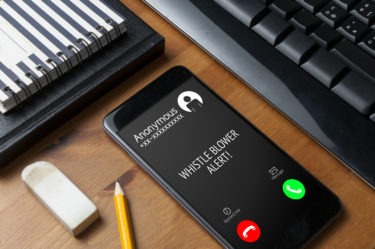
In addition, the anti-retaliation provision of the Sarbanes-Oxley Act provides robust protection for corporate whistleblowers. To learn more about corporate whistleblower protections, download our guide Sarbanes-Oxley Whistleblower Protection: Robust Protection for Corporate Whistleblowers.
CFTC and SEC Market Manipulation Whistleblower Reward Attorneys
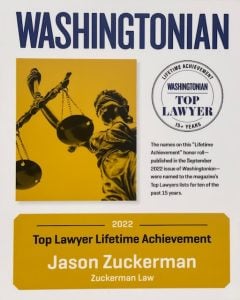
For more information about the SEC Whistleblower Program, download Zuckerman Law’s eBook: SEC Whistleblower Program: Tips from SEC Whistleblower Attorneys to Maximize an SEC Whistleblower Award
Click below to hear SEC whistleblower lawyer Matt Stock’s tips for SEC whistleblowers:
How We Can Help You Obtain an SEC Whistleblower Award for Disclosing Market Manipulation
Process to Qualify for an SEC Market Manipulation Whistleblower Award
Protections for Whistleblowers Reporting Market Manipulation
Market Manipulation Whistleblower Bounties
CFTC Whistleblower Alert About Spoofing in the Commodities and Derivatives Markets
CFTC Whistleblower Alert- Blow the Whistle on Spoofing in the Commodities and Derivatives Markets







